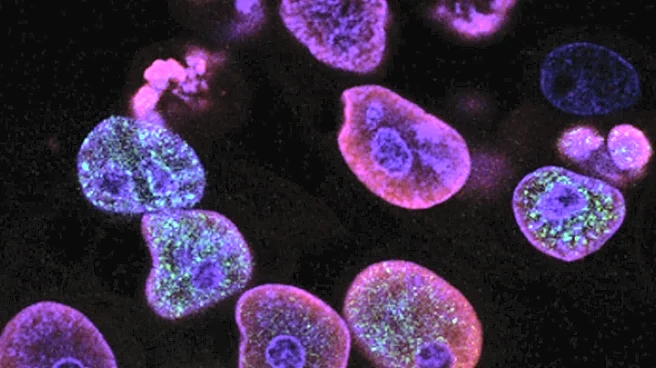What's Happening?
Recent research has highlighted the potential of pNaktide in reversing metabolic reprogramming and disease progression in clear cell renal cell carcinoma (ccRCC) associated with ATP1A1 deficiency. The study demonstrated that pNaktide effectively inhibits ccRCC proliferation by suppressing the SRC signaling pathway and inducing metabolic changes similar to those observed with ATP1A1 overexpression. The research involved knocking down ATP1A1 in 786-O cells, which led to increased levels of phosphorylated SRC and ERK. This suggests that pNaktide can counteract the upregulation of SRC activity resulting from ATP1A1 knockdown. The findings indicate that ATP1A1 interacts with SRC to regulate downstream signaling cascades, influencing ccRCC cell metabolism to promote apoptosis and inhibit cell proliferation.
Why It's Important?
The study's findings are significant as they offer a potential therapeutic approach for treating ccRCC, a common and aggressive form of kidney cancer. By targeting the SRC signaling pathway, pNaktide could provide a new avenue for cancer treatment, potentially improving outcomes for patients with ATP1A1-deficient ccRCC. This research could lead to the development of more effective treatments, reducing the reliance on traditional therapies that may have limited efficacy or significant side effects. The broader implications for cancer treatment could include more personalized approaches, targeting specific metabolic pathways involved in tumor growth and progression.








